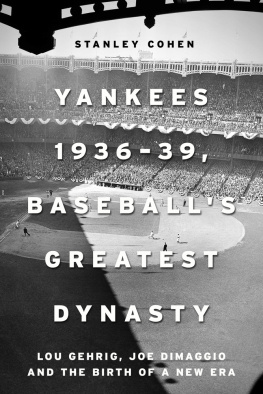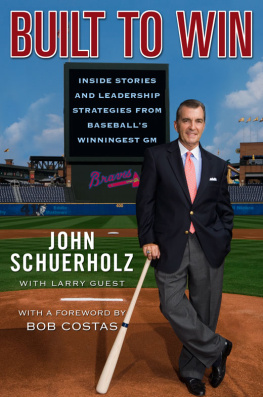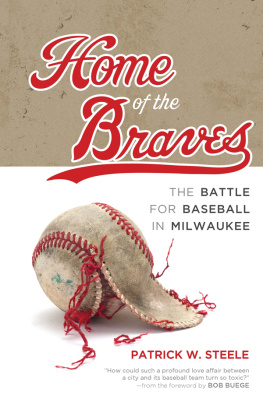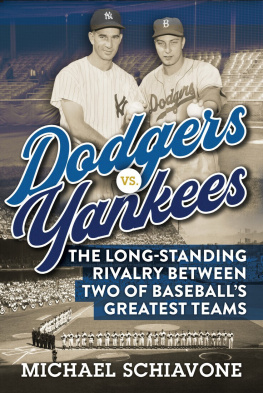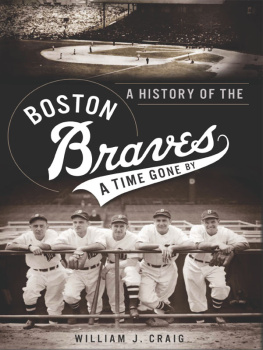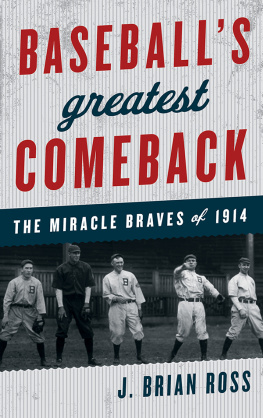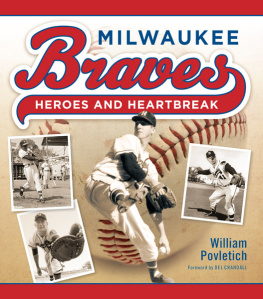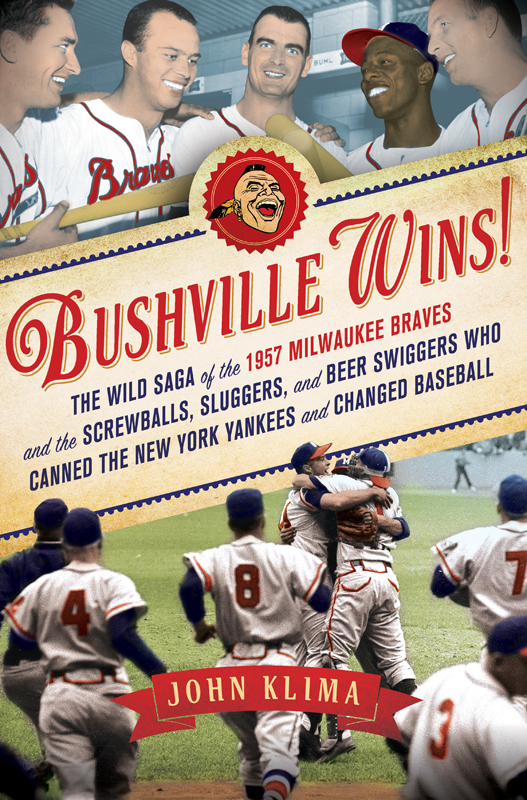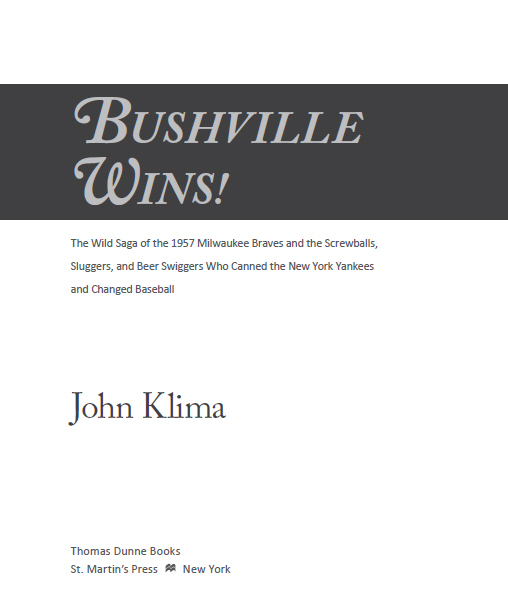John Klima - Bushville Wins!: The Wild Saga of the 1957 Milwaukee Braves and the Screwballs, Sluggers, and Beer Swiggers Who Canned the New York Yankees and Changed Baseball
Here you can read online John Klima - Bushville Wins!: The Wild Saga of the 1957 Milwaukee Braves and the Screwballs, Sluggers, and Beer Swiggers Who Canned the New York Yankees and Changed Baseball full text of the book (entire story) in english for free. Download pdf and epub, get meaning, cover and reviews about this ebook. year: 2012, publisher: St. Martins Publishing Group, genre: Non-fiction. Description of the work, (preface) as well as reviews are available. Best literature library LitArk.com created for fans of good reading and offers a wide selection of genres:
Romance novel
Science fiction
Adventure
Detective
Science
History
Home and family
Prose
Art
Politics
Computer
Non-fiction
Religion
Business
Children
Humor
Choose a favorite category and find really read worthwhile books. Enjoy immersion in the world of imagination, feel the emotions of the characters or learn something new for yourself, make an fascinating discovery.

- Book:Bushville Wins!: The Wild Saga of the 1957 Milwaukee Braves and the Screwballs, Sluggers, and Beer Swiggers Who Canned the New York Yankees and Changed Baseball
- Author:
- Publisher:St. Martins Publishing Group
- Genre:
- Year:2012
- Rating:3 / 5
- Favourites:Add to favourites
- Your mark:
Bushville Wins!: The Wild Saga of the 1957 Milwaukee Braves and the Screwballs, Sluggers, and Beer Swiggers Who Canned the New York Yankees and Changed Baseball: summary, description and annotation
We offer to read an annotation, description, summary or preface (depends on what the author of the book "Bushville Wins!: The Wild Saga of the 1957 Milwaukee Braves and the Screwballs, Sluggers, and Beer Swiggers Who Canned the New York Yankees and Changed Baseball" wrote himself). If you haven't found the necessary information about the book — write in the comments, we will try to find it.
The rip-roaring story of baseballs most unlikely champions, featuring interviews with Henry Aaron, Bob Uecker and other members of the Milwaukee Braves, Bushville Wins! takes you to a time and place baseball and the Heartland will never forget.
Bushville hits the sweet spot of my childhood, the year my family moved to Wisconsin and the Braves won the World Series against the Yankees, a team my Brooklyn-raised dad taught us to hate. Thanks to John Klima for bringing it all back to life with such vivid detail and energetic writing. David Maraniss, New York Times bestselling author of Clemente and When Pride Still Mattered
In the early 1950s, the New York Yankees were the biggest bullies on the block. They were invincible: they led the New York City baseball dynasty, which for eight consecutive years held an iron grip on the World Series championship.
Then the Boston Braves moved to Milwaukee in 1953, becoming surprise revolutionaries. Led by visionary owner Lou Perini, the Braves formed a powerful relationship with the Miller Brewing Company and foreshadowed the Dodgers and Giants moving west, sparking continental expansion and the ballpark boom.
But the rest of the country wasnt sold. Why would a major league team move to a minor league town? In big cities like New York, Milwaukee was thought to be a podunk train station stop-off where the fans were always drunk and wouldnt know a baseball from a beer. They called Milwaukee Bushville.
The Braves were no bushers! Eddie Mathews was a handsome home run hitter with a rugged edge. Warren Spahn was the craftiest pitcher in the business. Lew Burdette was a sharky spitball artist. Taken together, the Braves reveled in the High Life and made Milwaukee famous, while Wisconsin fans showed the rest of the country how to crack a cold one and throw a tailgate party. And in 1954, a solemn and skinny slugger came from Mobile to Milwaukee. Henry Aaron began his march to history.
With a cast of screwballs, sluggers and beer swiggers, the Braves proved the guys at the corner bar could do the impossible - topple Casey Stengels New York baseball dynasty in a World Series for the ages.
John Klima: author's other books
Who wrote Bushville Wins!: The Wild Saga of the 1957 Milwaukee Braves and the Screwballs, Sluggers, and Beer Swiggers Who Canned the New York Yankees and Changed Baseball? Find out the surname, the name of the author of the book and a list of all author's works by series.

